To provide the best experiences, we use technologies like cookies to store and/or access device information. Consenting to these technologies will allow us to process data such as browsing behaviour or unique IDs on this site. Not consenting or withdrawing consent, may adversely affect certain features and functions.
The technical storage or access is strictly necessary for the legitimate purpose of enabling the use of a specific service explicitly requested by the subscriber or user, or for the sole purpose of carrying out the transmission of a communication over an electronic communications network.
The technical storage or access is necessary for the legitimate purpose of storing preferences that are not requested by the subscriber or user.
The technical storage or access that is used exclusively for statistical purposes.
The technical storage or access that is used exclusively for anonymous statistical purposes. Without a subpoena, voluntary compliance on the part of your Internet Service Provider, or additional records from a third party, information stored or retrieved for this purpose alone cannot usually be used to identify you.
The technical storage or access is required to create user profiles to send advertising, or to track the user on a website or across several websites for similar marketing purposes.
 New research published by Leeds Trinity University and parenting platform DaddiLife claims that young fathers face preventable barriers when accessing education and employment, leaving some in vulnerable positions with an increased risk of facing mental health issues. (more…)
New research published by Leeds Trinity University and parenting platform DaddiLife claims that young fathers face preventable barriers when accessing education and employment, leaving some in vulnerable positions with an increased risk of facing mental health issues. (more…)








 Staff need on average three days a week (2.91) in the office to achieve maximum productivity, according to a new study by
Staff need on average three days a week (2.91) in the office to achieve maximum productivity, according to a new study by 
 It has now been more than eight months since the government first advised people to work from home if possible, due to COVID-19. The shift to remote working happened suddenly in March and quickly became part of everyday life; in April 2020 alone,
It has now been more than eight months since the government first advised people to work from home if possible, due to COVID-19. The shift to remote working happened suddenly in March and quickly became part of everyday life; in April 2020 alone, 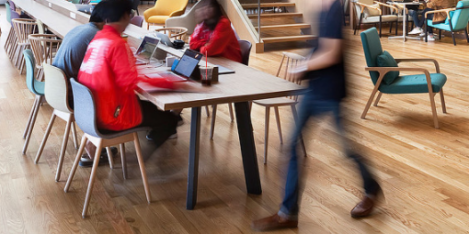
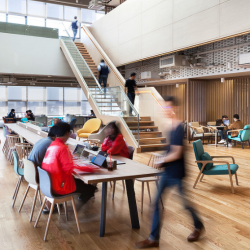 A survey issued by architecture, design, and planning firm
A survey issued by architecture, design, and planning firm 

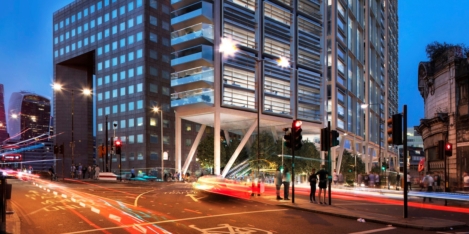
 Climate change has accelerated the urgency to address the way people live and work. With the UK’s aim to become carbon neutral by 2050,
Climate change has accelerated the urgency to address the way people live and work. With the UK’s aim to become carbon neutral by 2050, 
 As many of us cope with yet another lockdown, optimism is easy to misplace but, for disabled workers, this could result in monumental change for future employment. On the month commencing the 25th anniversary of the Disability Discrimination Act and the run-up to International Day of Disabled Persons, could this be the final push for change? As we swing in and out of remote-working, whether you love it or loathe it, one thing is abundantly clear – it can be done. Something that the
As many of us cope with yet another lockdown, optimism is easy to misplace but, for disabled workers, this could result in monumental change for future employment. On the month commencing the 25th anniversary of the Disability Discrimination Act and the run-up to International Day of Disabled Persons, could this be the final push for change? As we swing in and out of remote-working, whether you love it or loathe it, one thing is abundantly clear – it can be done. Something that the 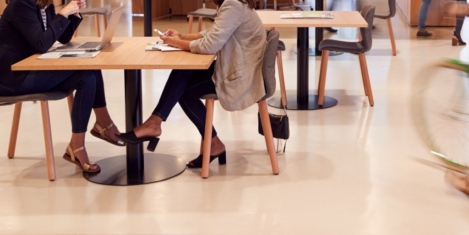
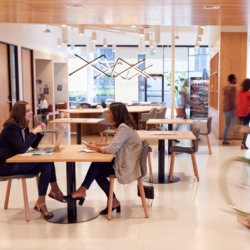 A new report from the
A new report from the 
 With a new national lockdown, the situation in the UK remains unpredictable and complicated, and renewed pressure to work from home has forced many organisations to reverse their back-to-work plans, according to a new study from
With a new national lockdown, the situation in the UK remains unpredictable and complicated, and renewed pressure to work from home has forced many organisations to reverse their back-to-work plans, according to a new study from 
 GlobalWebIndex (GWI), together with LinkedIn’s B2B Institute, has launched “
GlobalWebIndex (GWI), together with LinkedIn’s B2B Institute, has launched “
 A new study by
A new study by 








November 23, 2020
The crisis is making us more authentically human at work
by Jill Dark • Comment, Flexible working, Wellbeing, Workplace design